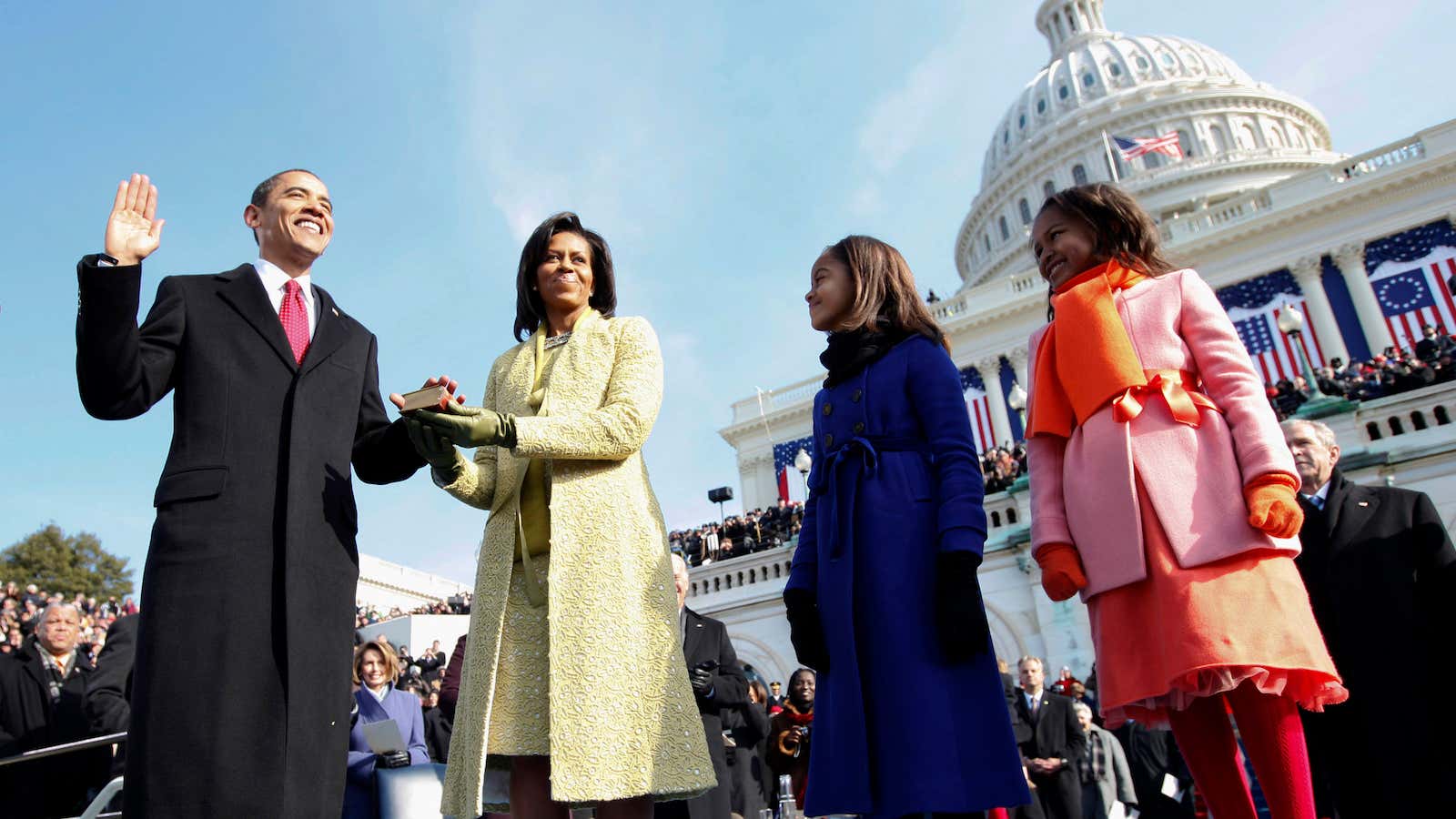For the first few months of every year, high school students across the US are in an unceasing state of worry and excitement about where they’re going to go to college. And for almost every one of them, there’s likely a parent—similarly stressed—hovering over their laptops and the mailbox.
Sometimes that concern is supportive and motivating. But as many an exasperated teenager will tell you, parental concern often serves only to amplify fear and self-doubt in the college application process, adding pressure to an already unwieldy load.
It’s a pressure that first lady Michelle Obama understands well. Her elder daughter, Malia, will soon choose a college to attend in the fall. Speaking to Seventeen magazine this week, Obama offered up the advice she has given to Malia and her other daughter, Sasha, about applying to college:
The only thing I’ve been telling my daughters is that I don’t want them to choose a name. I don’t want them to think, ‘Oh, I should go to these top schools.’ We live in a country where there’s thousands of amazing universities, so the question is—what’s going to work for you?
That’s an incredibly useful question to keep in mind. It’s simple. It’s undemanding. And it doesn’t set any expectations or suggest one direction over another. Instead, it challenges the young person to really think through what they want.
Many parents push their kids to go to prestigious brand-name universities, but given that acceptance rates at the US’s most selective universities have plummeted into the single digits, it’s not feasible to expect every child to be perfectly suited for the Ivy League or its peer schools. Even if they manage to get in, there’s no guarantee that it’s the wisest choice. Indeed, there’s little evidence that the prestige of a university makes students more likely to be happy with their educational experience—and it’s clear that the financial burden of debt for an expensive school can be crushing.
Obama’s argument cuts both ways. Encouraging students to choose schools in which they’re actually interested also means not dissuading them from aiming high—if that’s what they want. That was her own experience, she recalled.
“When it was time for me to apply to colleges, there were some counselors who said, ‘Maybe with Princeton you’re reaching a little high,'” she said. “And I thought, ‘You really don’t think I can do it?’ But here’s what I did: I decided to ignore the doubters. I plunged ahead.”
She got into Princeton University. And, after that, she went to Harvard Law School, practiced law, and became the first lady of the United States. So parents—and their children—could probably profit from her advice.
